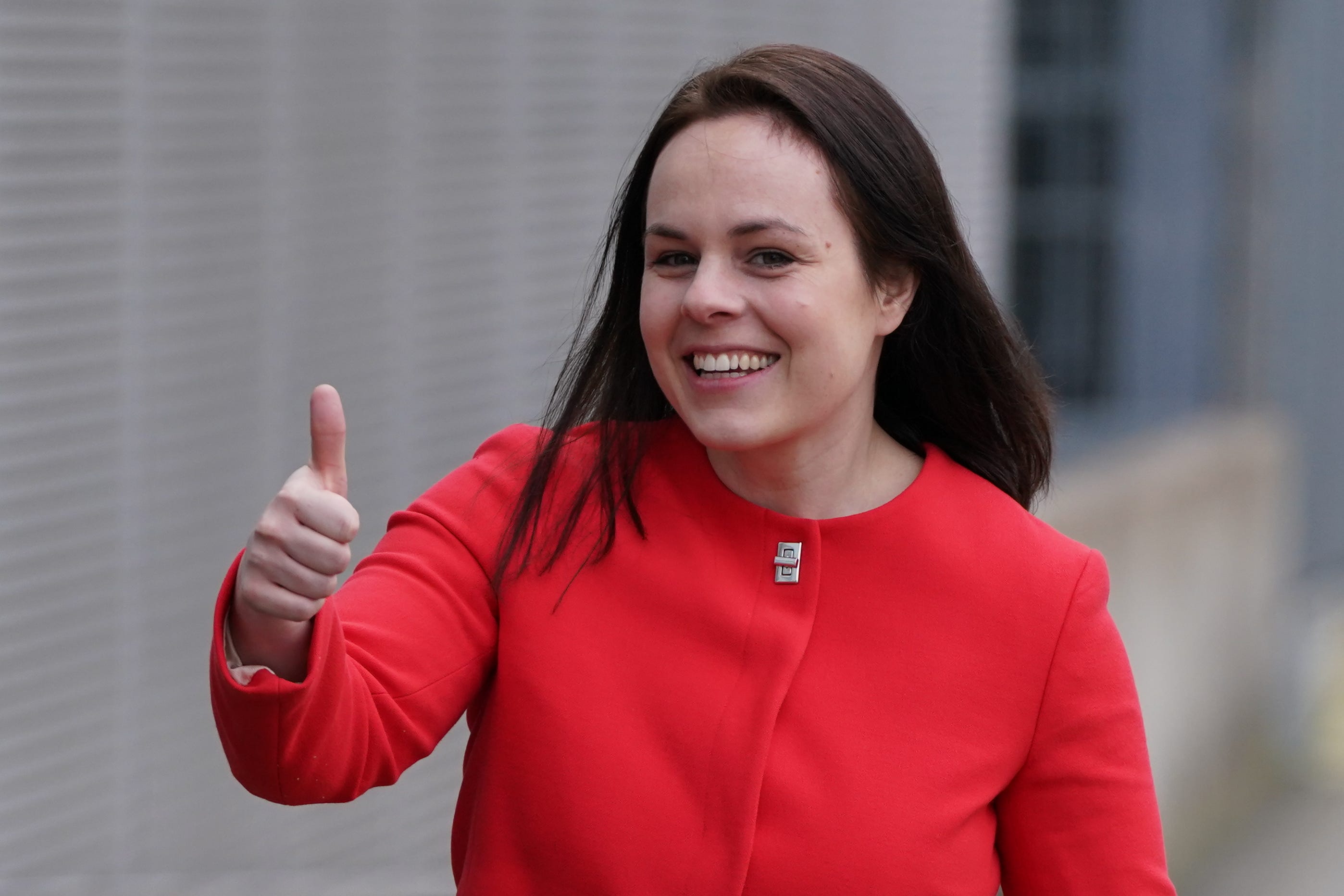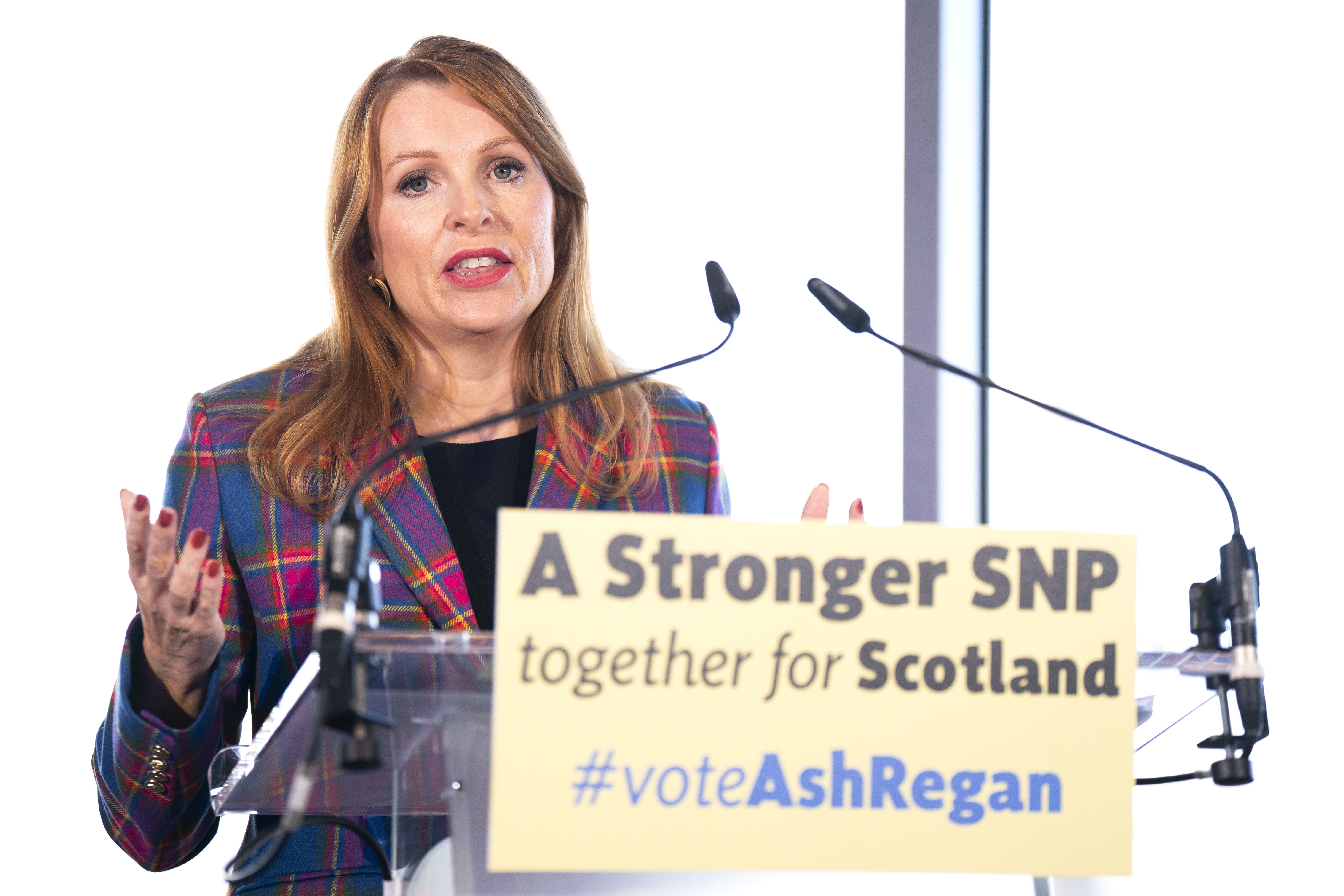Nicola Sturgeon successor shouldn’t be against gay marriage, says SNP’s Humza Yousaf
Kate Forbes’s leading rival for top job warns against any attempt to ‘roll back’ on equality
Your support helps us to tell the story
From reproductive rights to climate change to Big Tech, The Independent is on the ground when the story is developing. Whether it's investigating the financials of Elon Musk's pro-Trump PAC or producing our latest documentary, 'The A Word', which shines a light on the American women fighting for reproductive rights, we know how important it is to parse out the facts from the messaging.
At such a critical moment in US history, we need reporters on the ground. Your donation allows us to keep sending journalists to speak to both sides of the story.
The Independent is trusted by Americans across the entire political spectrum. And unlike many other quality news outlets, we choose not to lock Americans out of our reporting and analysis with paywalls. We believe quality journalism should be available to everyone, paid for by those who can afford it.
Your support makes all the difference.Scotland’s next first minister should not be someone who would vote against gay marriage or roll back equal rights, the SNP leadership candidate Humza Yousaf has said.
In an apparent dig at Kate Forbes, his main rival to succeed Nicola Sturgeon, Mr Yousaf suggested it would not be “acceptable” for someone who opposed same-sex marriage to lead the country.
Ms Forbes, a devout Christian, has come under fire for saying she would not vote for gay marriage if a vote were held now – though she has vowed to protect existing equality legislation.
Asked by the BBC host Laura Kuenssberg whether the first minister should be someone who doesn’t agree with equal marriage, Mr Yousaf replied: “Not if they would roll back on those rights, I don’t think that’s acceptable.
“If they were able to disassociate their view, and not let that interfere with policymaking or legislating, then I think that’s a different matter.”
Mr Yousaf added: “But if they have already said that they would roll back or vote against those rights, then what would happen, for example, if somebody brought in a member’s bill or a piece of legislation to try to roll back on equal marriage?”
The Scottish health secretary – who has also been grilled about his support for marriage equality after it emerged he had skipped the crucial vote in 2014 – spoke of his frustration that the subject has dominated the SNP leadership contest.
Former SNP minister Alex Neil has accused Mr Yousaf of deliberately skipping the final vote on equal marriage in Scotland, something the candidate firmly denies.
On the BBC’s Sunday with Laura Kuenssberg show, Mr Yousaf was asked if he was frustrated that the race had “already got a bit dirty”.
He said: “I think it is frustrating. There have been some issues that have dominated, like the ones that we’ve just been discussing. I’m not saying these issues aren’t important, but a lot of people want to hear from the candidates what we can do to ease the cost of living crisis.”
Despite the huge controversy over her views, Ms Forbes has emerged as the preferred candidate among Scottish voters to be the next SNP leader and first minister, a poll has suggested.
In the Panelbase poll for The Sunday Times, 23 per cent said they would like Ms Forbes to be the next SNP leader, with 15 per cent preferring Mr Yousaf and 7 per cent saying they preferred the third contender, Ash Regan.

It came as Ms Regan defended her fundamentalist approach to the Scottish independence push, having vowed to demand negotiations with the UK government on separation if the SNP wins future elections.
Discussing her views on BBC Scotland’s The Sunday Show, she suggested that only those who want their vote to be treated as a declaration for independence should vote SNP.
Asked if SNP voters who are not in favour of independence should therefore avoid voting for the party, she said: “Yes. It will be very clear, because it’s in the first line of our manifesto, what their vote will be for.”

She added: “But, as I said, it will not just be that. There will also be policies in there as well. So it will be up to the voters to decide who they want to vote for. If you want independence, then you’ll vote for the SNP.”
Pressed on what would happen if the UK government refused to enter into negotiations, she referred to historical cases involving Ireland and the US. “Also, you must remember there is the UN charter, Article 1.2, respect for self-determination, and that’s what we’re talking about here.”
Mr Yousaf told the BBC that he was “not wedded” to the idea, proposed by Ms Sturgeon, of making the next general election a “de facto” referendum on independence. “If we create the sustained settled will, the majority of people supporting independence, then of course, those political obstacles that are put in our way by the opposition, they will crumble.”
Meanwhile, Ms Forbes indicated that she would take a different approach from Ms Sturgeon’s SNP-led government on a number of policies. She said the production of oil and gas from the North Sea should not be wound down “too quickly”.
She told The Herald on Sunday: “Any transition that happens too quickly will not only damage the Scottish economy in the short term, but also the long term if we don’t protect the jobs, skills and supply chain that is required for the renewables industry.”
She also told The Mail on Sunday that she would scrap plans for a deposit return scheme – a Scottish government initiative to boost recycling – and ditch an attempt to introduce new curbs on alcohol advertising.






Join our commenting forum
Join thought-provoking conversations, follow other Independent readers and see their replies
Comments